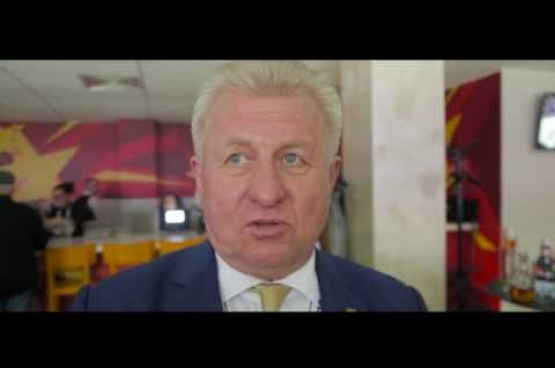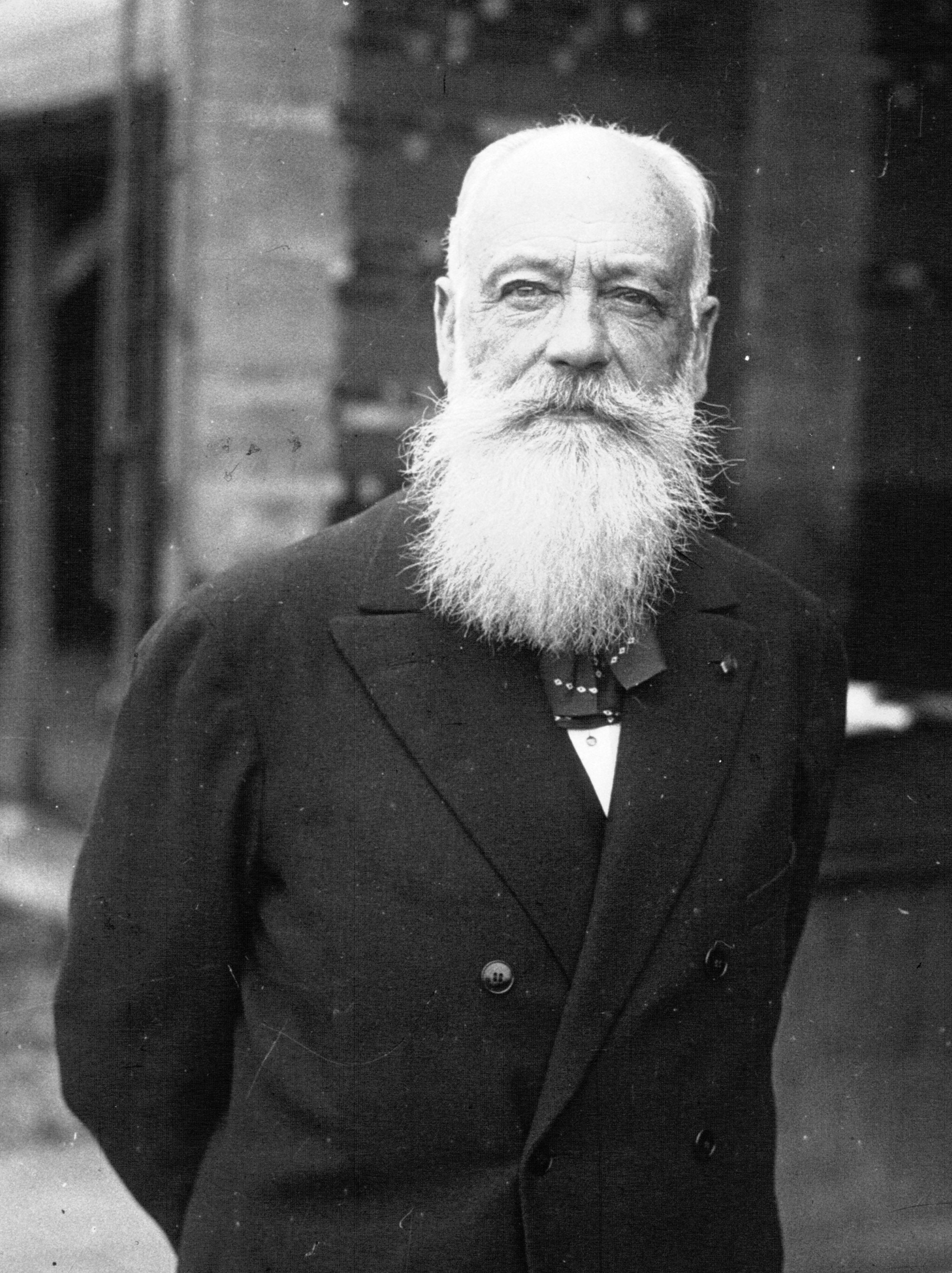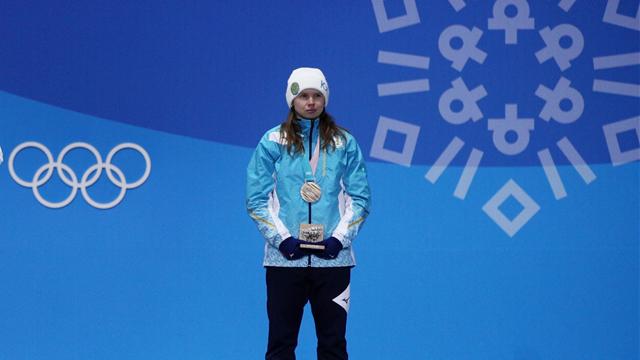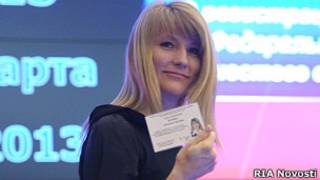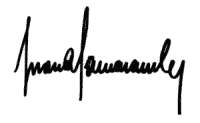Воскобойников, Дмитрий Вячеславович. Дмитрий вячеславович воскобойников
| 51 | ШИРШОВАлександр Сергеевич | Фехтование | 25.08.2018 |
| 52 | КИСЛОВНикита Олегович | Плавание | 25.08.2018 |
| 53 | ВЕРЕЩАКМария Витальевна | Гимнастика художественная | 25.08.2018 |
| 54 | ПОЛЯКОВАКсения Витальевна | Гимнастика художественная | 25.08.2018 |
| 55 |
 ЧУКАРИНВиктор Иванович
ЧУКАРИНВиктор Иванович
|
Гимнастика спортивная | 25.08.2018 |
| 56 |
 МАКСИМОВАНина Александровна
МАКСИМОВАНина Александровна
|
Баскетбол | 25.08.2018 |
| 57 |
 РАСТВОРОВАВалентина Ксенофонтовна
РАСТВОРОВАВалентина Ксенофонтовна
|
Фехтование | 25.08.2018 |
| 58 |
 БАШАЕВТамерлан Таусович
БАШАЕВТамерлан Таусович
|
Дзюдо, Самбо | 24.08.2018 |
| 59 |
 ФАРНОСОВА Мария Сергеевна
ФАРНОСОВА Мария Сергеевна
|
Легкая атлетика | 24.08.2018 |
| 60 |
 ТОМАШОВАТатьяна Ивановна
ТОМАШОВАТатьяна Ивановна
|
Легкая атлетика | 24.08.2018 |
| 61 |
 ЗАВЬЯЛОВА Екатерина Ивановна
ЗАВЬЯЛОВА Екатерина Ивановна
|
Легкая атлетика | 24.08.2018 |
| 62 |
 ИНФАНТИНОДжанни
ИНФАНТИНОДжанни
|
Футбол | 24.08.2018 |
| 63 |
 НЕТТОИгорь Александрович
НЕТТОИгорь Александрович
|
Футбол | 24.08.2018 |
| 64 |
 ПАРАМОНОВАлексей Александрович
ПАРАМОНОВАлексей Александрович
|
Футбол | 24.08.2018 |
| 65 |
 НОВИКОВАндрей Георгиевич
НОВИКОВАндрей Георгиевич
|
Футбол пляжный | 24.08.2018 |
| 66 |
 ЗЕМСКОВФедор Евгеньевич
ЗЕМСКОВФедор Евгеньевич
|
Футбол пляжный | 24.08.2018 |
| 67 |
 ЕРЕМИНАНина Алексеевна
ЕРЕМИНАНина Алексеевна
|
Баскетбол | 24.08.2018 |
| 68 |
 ГУРГЕНИДЗЕВладимир Робертович
ГУРГЕНИДЗЕВладимир Робертович
|
Акробатика спортивная | 24.08.2018 |
| 69 |
 КРАСНОВВячеслав Максимович
КРАСНОВВячеслав Максимович
|
Легкая атлетика | 24.08.2018 |
| 70 |
 КУУЗИКХуго-Максимилиан Рейнгольдович
КУУЗИКХуго-Максимилиан Рейнгольдович
|
Гребля академическая | 24.08.2018 |
| 71 | ХАЛИКОВАндрей | Горнолыжный спорт | 23.08.2018 |
| 72 | ШОРОХОВЕвгений Акимович | 23.08.2018 | |
| 73 | ХОМИЧАльбина Викторовна | Тяжелая атлетика | 23.08.2018 |
| 74 | ГУБИНАлександр Михайлович | Биатлон, Лыжные гонки | 23.08.2018 |
| 75 | ЯКУБИКАндрей Александрович | Футбол | 23.08.2018 |
| 76 | КОРОСТЫЛЕВА Ольга Федоровна | Баскетбол | 23.08.2018 |
| 77 | ЯНОВСКИЙВячеслав Евгеньевич | Бокс | 23.08.2018 |
| 78 | ДОНСКОВАУльяна Вячеславовна | Гимнастика художественная | 23.08.2018 |
| 79 | МЕЛЬНИЧЕНКОГалина | Баскетбол | 23.08.2018 |
| 80 | ПИЦХЕЛАУРИШенгели | Дзюдо, Самбо | 23.08.2018 |
| 81 | КАЗУНИНАВиктория Юрьевна | Дзюдо | 23.08.2018 |
| 82 | РУМЯНЦЕВАНадежда Сергеевна | Шорт-трек | 23.08.2018 |
| 83 | БАТЫРОВХабиб Гаджиевич | Борьба вольная | 23.08.2018 |
| 84 | ХОРОШАВЦЕВАОльга Николаевна | Борьба вольная | 23.08.2018 |
| 85 | ЮСУПОВХарис Мунасипович | Борьба вольная, Борьба греко-римская, Самбо | 23.08.2018 |
| 86 | ПИСАРЕВСКИЙОлег Глебович | Тяжелая атлетика | 23.08.2018 |
| 87 | ТОЛМАЧЕВВиктор Егорович | Хоккей | 23.08.2018 |
| 88 | ТРОПКИНААнастасия Александровна | Гребной слалом | 23.08.2018 |
| 89 | ВАСИЧКИНВиктор Николаевич | Стрельба стендовая | 23.08.2018 |
| 90 | КОСТОРНАЯАлена Сергеевна | Фигурное катание на коньках | 23.08.2018 |
| 91 | ТЯПИНПавел Николаевич | Горнолыжный спорт | 23.08.2018 |
| 92 | КУРАШКИНАлександр Иванович | Самбо | 23.08.2018 |
| 93 | СТЕПИЧЕВАлександр Сергеевич | Санный спорт | 23.08.2018 |
| 94 | НИКИТИНАнтон Аркадьевич | Плавание | 23.08.2018 |
| 95 |
 ТАЙШИНА Светлана Александровна
ТАЙШИНА Светлана Александровна
|
Шорт-трек | 23.08.2018 |
| 96 | БЫКОВДмитрий Вячеславович | Хоккей | 23.08.2018 |
| 97 | БЫКОВКирилл Владимирович | Конькобежный спорт | 23.08.2018 |
| 98 | БЫКОВПавел Павлович | Фехтование | 23.08.2018 |
| 99 | БЫКОВАИрина Владимировна | Тхэквондо (ВТФ) | 23.08.2018 |
| 100 | БЫКОВАнатолий Петрович | Бокс | 23.08.2018 |
| ИТОГО | 0 | ||
www.infosport.ru
Воскобойников, Дмитрий Вячеславович - WikiVisually
1. Союз Советских Социалистических Республик – The Soviet Union, officially the Union of Soviet Socialist Republics was a socialist state in Eurasia that existed from 1922 to 1991. It was nominally a union of national republics, but its government. The Soviet Union had its roots in the October Revolution of 1917 and this established the Russian Socialist Federative Soviet Republic and started the Russian Civil War between the revolutionary Reds and the counter-revolutionary Whites. In 1922, the communists were victorious, forming the Soviet Union with the unification of the Russian, Transcaucasian, Ukrainian, following Lenins death in 1924, a collective leadership and a brief power struggle, Joseph Stalin came to power in the mid-1920s. Stalin suppressed all opposition to his rule, committed the state ideology to Marxism–Leninism. As a result, the country underwent a period of rapid industrialization and collectivization which laid the foundation for its victory in World War II and postwar dominance of Eastern Europe. Shortly before World War II, Stalin signed the Molotov–Ribbentrop Pact agreeing to non-aggression with Nazi Germany, in June 1941, the Germans invaded the Soviet Union, opening the largest and bloodiest theater of war in history. Soviet war casualties accounted for the highest proportion of the conflict in the effort of acquiring the upper hand over Axis forces at battles such as Stalingrad. Soviet forces eventually captured Berlin in 1945, the territory overtaken by the Red Army became satellite states of the Eastern Bloc. The Cold War emerged by 1947 as the Soviet bloc confronted the Western states that united in the North Atlantic Treaty Organization in 1949. Following Stalins death in 1953, a period of political and economic liberalization, known as de-Stalinization and Khrushchevs Thaw, the country developed rapidly, as millions of peasants were moved into industrialized cities. The USSR took a lead in the Space Race with Sputnik 1, the first ever satellite, and Vostok 1. In the 1970s, there was a brief détente of relations with the United States, the war drained economic resources and was matched by an escalation of American military aid to Mujahideen fighters. In the mid-1980s, the last Soviet leader, Mikhail Gorbachev, sought to reform and liberalize the economy through his policies of glasnost. The goal was to preserve the Communist Party while reversing the economic stagnation, the Cold War ended during his tenure, and in 1989 Soviet satellite countries in Eastern Europe overthrew their respective communist regimes. This led to the rise of strong nationalist and separatist movements inside the USSR as well, in August 1991, a coup détat was attempted by Communist Party hardliners. It failed, with Russian President Boris Yeltsin playing a role in facing down the coup. On 25 December 1991, Gorbachev resigned and the twelve constituent republics emerged from the dissolution of the Soviet Union as independent post-Soviet states
2. Россия – Russia, also officially the Russian Federation, is a country in Eurasia. The European western part of the country is more populated and urbanised than the eastern. Russias capital Moscow is one of the largest cities in the world, other urban centers include Saint Petersburg, Novosibirsk, Yekaterinburg, Nizhny Novgorod. Extending across the entirety of Northern Asia and much of Eastern Europe, Russia spans eleven time zones and incorporates a range of environments. It shares maritime borders with Japan by the Sea of Okhotsk, the East Slavs emerged as a recognizable group in Europe between the 3rd and 8th centuries AD. Founded and ruled by a Varangian warrior elite and their descendants, in 988 it adopted Orthodox Christianity from the Byzantine Empire, beginning the synthesis of Byzantine and Slavic cultures that defined Russian culture for the next millennium. Rus ultimately disintegrated into a number of states, most of the Rus lands were overrun by the Mongol invasion. The Soviet Union played a role in the Allied victory in World War II. The Soviet era saw some of the most significant technological achievements of the 20th century, including the worlds first human-made satellite and the launching of the first humans in space. By the end of 1990, the Soviet Union had the second largest economy, largest standing military in the world. It is governed as a federal semi-presidential republic, the Russian economy ranks as the twelfth largest by nominal GDP and sixth largest by purchasing power parity in 2015. Russias extensive mineral and energy resources are the largest such reserves in the world, making it one of the producers of oil. The country is one of the five recognized nuclear weapons states and possesses the largest stockpile of weapons of mass destruction, Russia is a great power as well as a regional power and has been characterised as a potential superpower. The name Russia is derived from Rus, a state populated mostly by the East Slavs. However, this name became more prominent in the later history, and the country typically was called by its inhabitants Русская Земля. In order to distinguish this state from other states derived from it, it is denoted as Kievan Rus by modern historiography, an old Latin version of the name Rus was Ruthenia, mostly applied to the western and southern regions of Rus that were adjacent to Catholic Europe. The current name of the country, Россия, comes from the Byzantine Greek designation of the Kievan Rus, the standard way to refer to citizens of Russia is Russians in English and rossiyane in Russian. There are two Russian words which are translated into English as Russians
3. Москва – Moscow is the capital and most populous city of Russia, with 13.2 million residents within the city limits and 17.8 million within the urban area. Moscow has the status of a Russian federal city, Moscow is a major political, economic, cultural, and scientific center of Russia and Eastern Europe, as well as the largest city entirely on the European continent. Moscow is the northernmost and coldest megacity and metropolis on Earth and it is home to the Ostankino Tower, the tallest free standing structure in Europe, the Federation Tower, the tallest skyscraper in Europe, and the Moscow International Business Center. Moscow is situated on the Moskva River in the Central Federal District of European Russia, the city is well known for its architecture, particularly its historic buildings such as Saint Basils Cathedral with its brightly colored domes. Moscow is the seat of power of the Government of Russia, being the site of the Moscow Kremlin, the Moscow Kremlin and Red Square are also one of several World Heritage Sites in the city. Both chambers of the Russian parliament also sit in the city and it is recognized as one of the citys landmarks due to the rich architecture of its 200 stations. In old Russian the word also meant a church administrative district. The demonym for a Moscow resident is москвич for male or москвичка for female, the name of the city is thought to be derived from the name of the Moskva River. There have been proposed several theories of the origin of the name of the river and its cognates include Russian, музга, muzga pool, puddle, Lithuanian, mazgoti and Latvian, mazgāt to wash, Sanskrit, majjati to drown, Latin, mergō to dip, immerse. There exist as well similar place names in Poland like Mozgawa, the original Old Russian form of the name is reconstructed as *Москы, *Mosky, hence it was one of a few Slavic ū-stem nouns. From the latter forms came the modern Russian name Москва, Moskva, in a similar manner the Latin name Moscovia has been formed, later it became a colloquial name for Russia used in Western Europe in the 16th–17th centuries. From it as well came English Muscovy, various other theories, having little or no scientific ground, are now largely rejected by contemporary linguists. The surface similarity of the name Russia with Rosh, an obscure biblical tribe or country, the oldest evidence of humans on the territory of Moscow dates from the Neolithic. Within the modern bounds of the city other late evidence was discovered, on the territory of the Kremlin, Sparrow Hills, Setun River and Kuntsevskiy forest park, etc. The earliest East Slavic tribes recorded as having expanded to the upper Volga in the 9th to 10th centuries are the Vyatichi and Krivichi, the Moskva River was incorporated as part of Rostov-Suzdal into the Kievan Rus in the 11th century. By AD1100, a settlement had appeared on the mouth of the Neglinnaya River. The first known reference to Moscow dates from 1147 as a place of Yuri Dolgoruky. At the time it was a town on the western border of Vladimir-Suzdal Principality
4. Летние Олимпийские игры – The Summer Olympic Games or the Games of the Olympiad, first held in 1896, is an international multi-sport event that is hosted by a different city every four years. The most recent Olympics were held in Rio de Janeiro, Brazil, the International Olympic Committee organizes the games and oversees the host citys preparations. In each Olympic event, gold medals are awarded for first place, silver medals are awarded for second place, and bronze medals are awarded for third, the Winter Olympic Games were created due to the success of the Summer Olympics. The Olympics have increased in scope from a 42-event competition with fewer than 250 male competitors from 14 nations in 1896 to 302 events with 10,768 competitors from 204 nations in 2012, eighteen countries have hosted the Summer Olympics. The United States has hosted four Summer Olympics, more than any other nation, four cities have hosted two Summer Olympics, Athens, Paris, Los Angeles, and Tokyo. Tokyo is the first city outside of the Western world to host the Summer Olympics multiple times, asia has hosted the Summer Olympics four times in Japan, South Korea, and China. The only Summer Olympics held in the Southern Hemisphere have been in Australia, the 2016 Games are the first Summer Olympics to be held in South America and the first to be held during the local winter season. Africa has yet to host a Summer Olympics, only five countries—Greece, Australia, France, Great Britain, and Switzerland—have been represented at every Summer Olympic Games. The only country to have won at least one medal at every Summer Olympic Games is Great Britain. The United States leads the medal table. Qualification rules for each of the Olympic sports are set by the International Sports Federations that governs that sports international competition, for individual sports, competitors typically qualify through attaining a certain place in a major international event or on the IFs ranking list. There is a rule that maximum three individual athletes may represent each nation per competition. Nations most often qualify teams for team sports through continental qualifying tournaments, each nation may be represented by no more than one team per competition a team is two people in some sports. The United States has hosted four Summer Olympic Games, more than any other nation, the United Kingdom hosted the 2012 Olympic Games, its third Summer Olympic Games, in its capital London, making London the first city to host the Summer Olympic Games three times. Australia, France, Germany, Greece, and Japan have all hosted the Summer Olympic Games twice. Other countries that have hosted the Summer Olympics are Belgium, Brazil, China, Canada, Finland, Italy, Mexico, Netherlands, South Korea, Spain, the Soviet Union, asia has hosted the Summer Olympics three times and will host again in 2020. In 2016, Rio de Janeiro hosted the first Summer Olympics in South America, three cities have hosted two Summer Olympic Games, Los Angeles, Paris, and Athens. Stockholm has hosted events at two Summer Olympic Games, having hosted the games in 1912 and the events at the 1956 Summer Olympics—which they are usually listed as jointly hosting
5. Летние Олимпийские игры 1964 – The 1964 Summer Olympics, officially known as the Games of the XVIII Olympiad, was an international multi-sport event held in Tokyo, Japan, from October 10 to 24,1964. The 1964 Summer Games were the first Olympics held in Asia, Tokyo was chosen as the host city during the 55th IOC Session in West Germany, on May 26,1959. These games were also the first to be telecast internationally without the need for tapes to be overseas, as they had been for the 1960 Olympics four years earlier. The games were telecast to the United States using Syncom 3, the first geostationary communication satellite and these were also the first Olympic Games to have color telecasts, albeit partially. Certain events like the sumo wrestling and judo matches, sports huge in Japan, were tried out using Toshibas new color transmission system, history surrounding the 1964 Olympics was chronicled in the 1965 documentary film Tokyo Olympiad, directed by Kon Ichikawa. The games were scheduled for mid-October to avoid the citys midsummer heat and humidity, the previous Olympics in Rome in 1960 started in late August and experienced hot weather. The following games in 1968 in Mexico City also began in October, the 1964 Olympics were also the last to use a traditional cinder track for the track events. A smooth synthetic all-weather track was used for the first time at the 1968 Olympics, the 2020 Summer Olympics will be held in Tokyo. Tokyo won the rights to the Games on May 26,1959, at the 55th IOC Session in Munich, West Germany, over bids from Detroit, Brussels and Vienna. Toronto was an early bidder again in 1964 after the attempt for 1960. Yūji Koseki composed the song of the opening ceremony. Yoshinori Sakai, who lit the Olympic Flame, was born in Hiroshima on August 6,1945, kumi-daiko was first exhibited to a world-wide audience at the Festival of Arts presentation. Judo and womens volleyball, both sports in Japan, were introduced to the Olympics. Japan won gold medals in three events, but Dutchman Anton Geesink won the Open category. The Japanese womens volleyball won the gold medal, with the final being broadcast live. The womens pentathlon was introduced to the athletics events, soviet gymnast Larisa Latynina won two gold medals, a silver medal and two bronze medals. She held the record for most Olympic medals at 18 which stood until broken by American swimmer Michael Phelps in 2012, czechoslovakian gymnast Věra Čáslavská wins 3 gold medals, including the individual all-around competition, crowning her the new queen over the reigning champion Larisa Latynina. Australian swimmer Dawn Fraser won the 100 m freestyle event for the time in a row
wikivisually.com
Воскобойников, Дмитрий Вячеславович
Дми́трий Вячесла́вович Воскобо́йников (2 марта 1941, Москва — 2 декабря 2001, Москва) — советский волейболист, игрок сборной СССР (1962—1966). Олимпийский чемпион 1964, чемпион мира 1962, обладатель Кубка мира 1965, двукратный чемпион СССР. Заслуженный мастер спорта СССР (1990).Выступал за команды: «Трудовые Резервы» (Москва), «Буревестник» (Москва), с 1966 — ЦСКА. Чемпион СССР 1966. В составе сборной Москвы чемпион СССР и победитель Спартакиады народов СССР 1963, серебряный призёр союзных первенств и Спартакиад 1959 и 1967.
В сборной СССР в официальных соревнованиях выступал в 1962—1966 годах. В её составе стал олимпийским чемпионом 1964, чемпионом мира 1962, бронзовым призёром мирового первенства 1966, победителем розыгрыша Кубка мира 1965, бронзовым призёром чемпионата Европы 1963.
Дмитрий Воскобойников умер в Москве 2 декабря 2001 года.
Источник
- Волейбол: Энциклопедия / Сост. В. Л. Свиридов, О. С. Чехов. — Томск: Компания «Янсон», 2001.
Ссылки
- Спортивный некрополь
| Иван Бугаенков • Николай Буробин • Юрий Венгеровский • Дмитрий Воскобойников • Валерий Калачихин • Важа Качарава • Виталий Коваленко • Станислав Люгайло • Георгий Мондзолевский • Юрий Поярков • Эдуард Сибиряков • Юрий Чесноков • Тренер Юрий Клещёв |
| Иван Бугаенков • Николай Буробин • Юрий Венгеровский • Дмитрий Воскобойников • Геннадий Гайковой • Виталий Коваленко • Ян Лабуцкас • Георгий Мондзолевский • Юрий Поярков • Эдуард Сибиряков • Анатолий Цирков • Юрий Чесноков • Тренер Гиви Ахвледиани |
Воскобойников, Дмитрий Вячеславович Информация о

Воскобойников, Дмитрий Вячеславович Комментарии
Воскобойников, Дмитрий ВячеславовичВоскобойников, Дмитрий Вячеславович Воскобойников, Дмитрий Вячеславович Просмотр темы.
Воскобойников, Дмитрий Вячеславович что, Воскобойников, Дмитрий Вячеславович кто, Воскобойников, Дмитрий Вячеславович объяснение
There are excerpts from wikipedia on this article and video
www.turkaramamotoru.com
| Токио 1964 | волейбол Чемпионаты мира Золото | СССР 1962 Бронза | Чехословакия 1966 Кубок мира Золото | Польша 1965 Чемпионаты Европы Бронза | Румыния 1963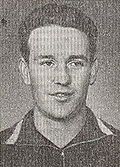 Дмитрий Воскобойников Могила Воскобойникова на Ваганьковском кладбище. Дмитрий Воскобойников Могила Воскобойникова на Ваганьковском кладбище. Дмитрий Вячеславович Воскобойников (2 марта 1941, Москва — 2 декабря 2001, Москва) — советский волейболист, игрок сборной СССР (1962—1966). Олимпийский чемпион 1964, чемпион мира 1962, обладатель Кубка мира 1965, двукратный чемпион СССР. Заслуженный мастер спорта СССР (1990). Выступал за команды: «Трудовые Резервы» (Москва), «Буревестник» (Москва), с 1966 — ЦСКА. Чемпион СССР 1966. В составе сборной Москвы чемпион СССР и победитель Спартакиады народов СССР 1963, серебряный призёр союзных первенств и Спартакиад 1959 и 1967. В сборной СССР в официальных соревнованиях выступал в 1962—1966 годах. В её составе стал олимпийским чемпионом 1964, чемпионом мира 1962, бронзовым призёром мирового первенства 1966, победителем розыгрыша Кубка мира 1965, бронзовым призёром чемпионата Европы 1963. Дмитрий Воскобойников умер в Москве 2 декабря 2001 года. Источник
|
vv-travel.ru
Воскобойников, Дмитрий Вячеславович - Википедия
Материал из Википедии — свободной энциклопедии
Текущая версия страницы пока не проверялась опытными участниками и может значительно отличаться от версии, проверенной 10 февраля 2017; проверки требует 1 правка. Текущая версия страницы пока не проверялась опытными участниками и может значительно отличаться от версии, проверенной 10 февраля 2017; проверки требует 1 правка.| Дмитрий Вячеславович Воскобойников | |
| мужской пол | |
| СССР Россия | |
| 6 марта 1941(1941-03-06) | |
| Москва, СССР | |
| 2 декабря 2001(2001-12-02) (60 лет) | |
| Награды и медали | |
Дми́трий Вячесла́вович Воскобо́йников (2 марта 1941, Москва — 2 декабря 2001, Москва) — советский волейболист, игрок сборной СССР (1962—1966). Олимпийский чемпион 1964, чемпион мира 1962, обладатель Кубка мира 1965, двукратный чемпион СССР. Заслуженный мастер спорта СССР (1990).
Биография[ | ]
Выступал за команды: «Трудовые Резервы» (Москва), «Буревестник» (Москва), с 1966 — ЦСКА. Чемпион СССР 1966. В составе сборной Москвы чемпион СССР и победитель Спартакиады народов СССР 1963, серебряный призёр союзных первенств и Спартакиад 1959 и 1967.
В сборной СССР в официальных соревнованиях выступал в 1962—1966 годах. В её составе стал олимпийским чемпионом 1964, чемпионом мира 1962, бронзовым призёром мирового первенства 1966, победителем розыгрыша Кубка мира 1965, бронзовым призёром чемпионата Европы 1963.
Дмитрий Воскобойников умер в Москве 2 декабря 2001 года.
Источник[ | ]
- Волейбол: Энциклопедия / Сост. В. Л. Свиридов, О. С. Чехов. — Томск: Компания «Янсон», 2001.
Ссылки[ | ]
encyclopaedia.bid
Воскобойников, Дмитрий Вячеславович Википедия
В Википедии есть статьи о других людях с такой фамилией, см. Воскобойников; Воскобойников, Дмитрий.| Дмитрий Вячеславович Воскобойников | |||||||||||||||||||||||||||||||||
| мужской | |||||||||||||||||||||||||||||||||
| |||||||||||||||||||||||||||||||||
| 6 марта 1941(1941-03-06) | |||||||||||||||||||||||||||||||||
| |||||||||||||||||||||||||||||||||
| 2 декабря 2001(2001-12-02) (60 лет) | |||||||||||||||||||||||||||||||||
| Награды и медали
| |||||||||||||||||||||||||||||||||
Дми́трий Вячесла́вович Воскобо́йников (2 марта 1941, Москва — 2 декабря 2001, Москва) — советский волейболист, игрок сборной СССР (1962—1966). Олимпийский чемпион 1964, чемпион мира 1962, обладатель Кубка мира 1965, двукратный чемпион СССР. Заслуженный мастер спорта СССР (1990).
ruwikiorg.ru



